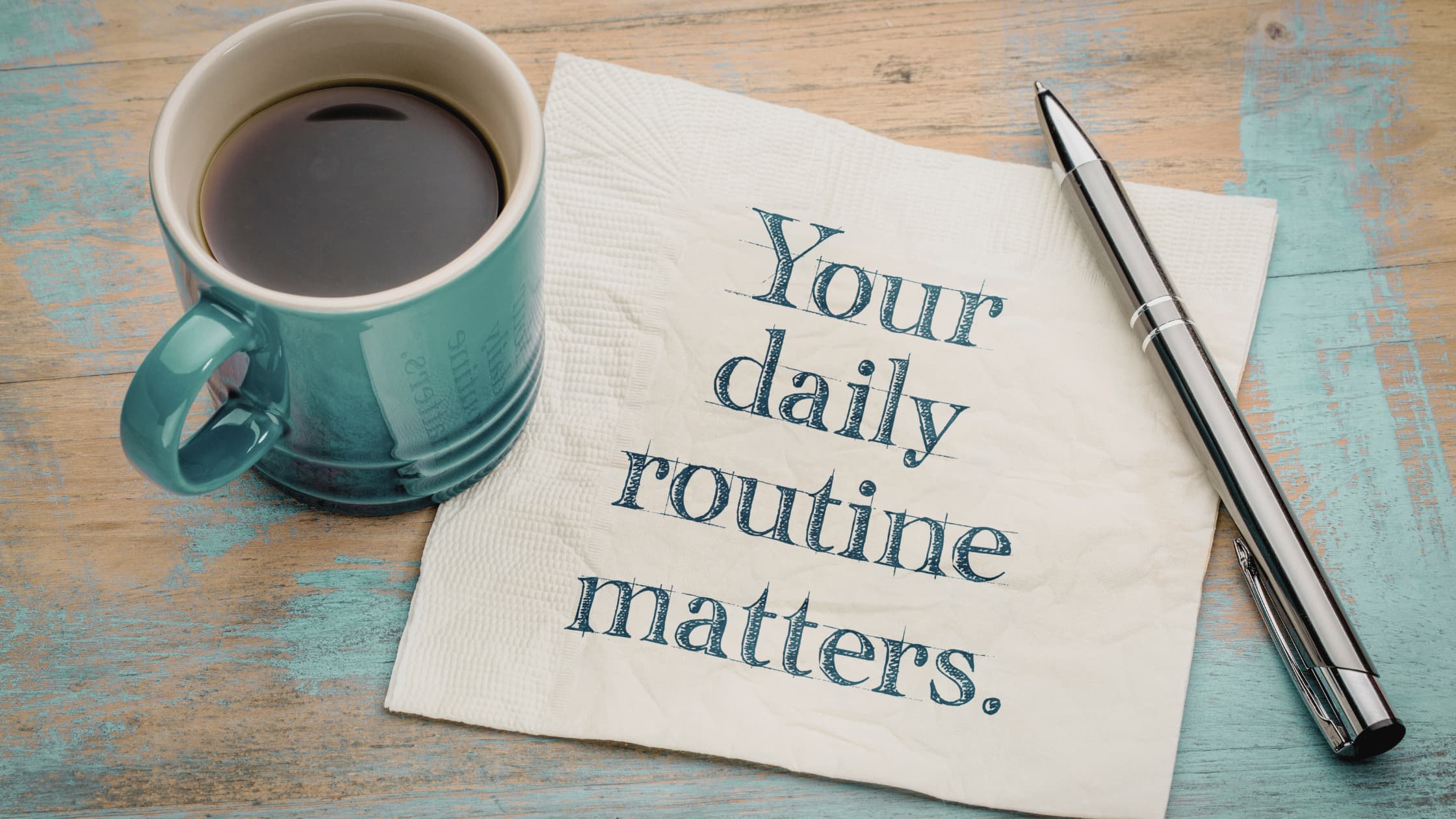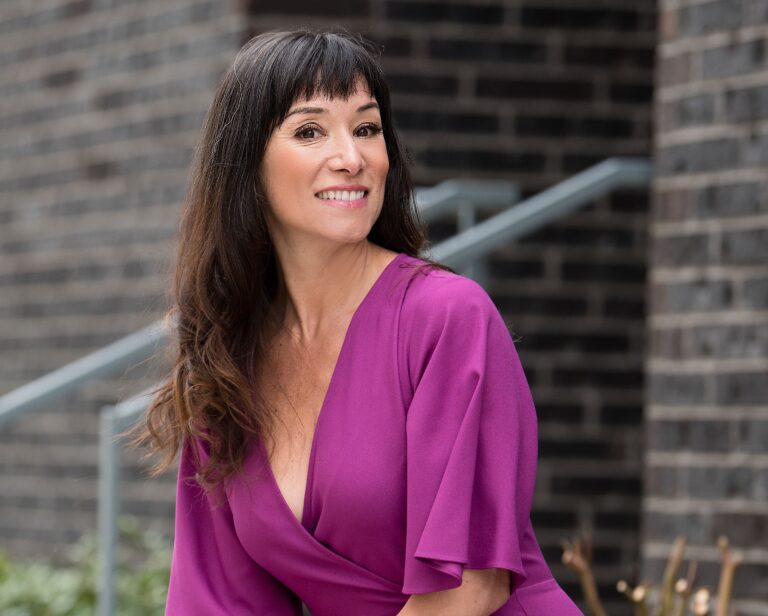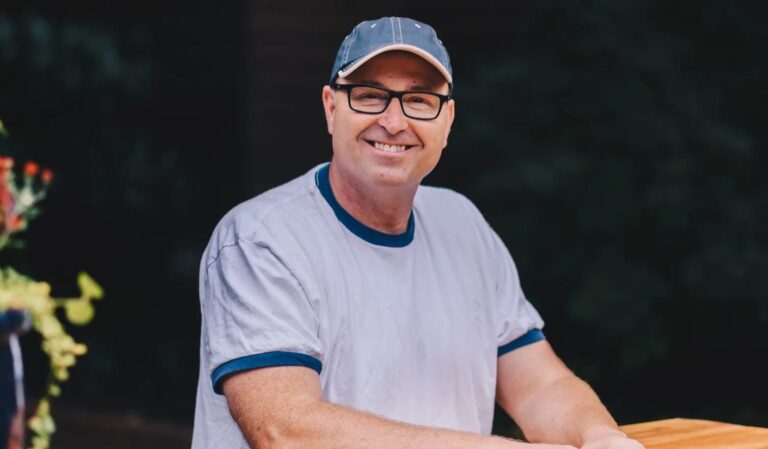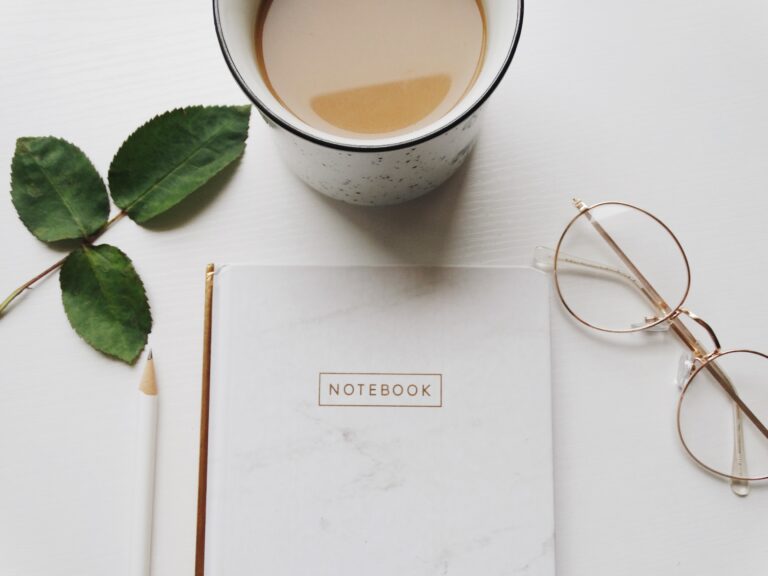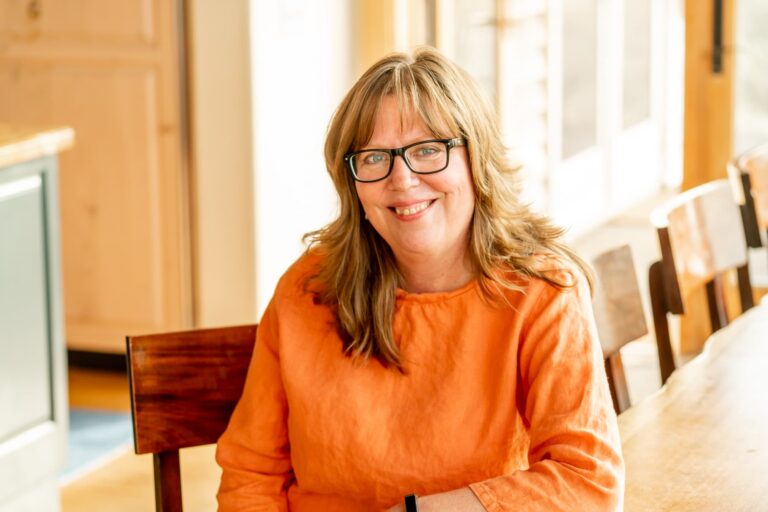The Power of Routines for Widows: Encouraging Healing and Growth
Life often throws unexpected challenges our way and establishing a sense of stability can feel like an insurmountable task. This is where the power of routines for widows comes into play – those daily rituals that provide structure, comfort, and a semblance of control.
In this episode of the Widow Squad Podcast we share our personal experiences and thoughts on how routines have become a game-changer in our healing journeys. From establishing cleaning rituals to exercise regimens to gratitude practices before bed, we discuss the power of routines in finding stability amidst chaos.
Key Topics in this episode include:
- Using routines to manage the upheaval of grief
- Adjusting routines when life disruptions occur
- Recommendations for incorporating routines after loss
We encourage you to embrace routines in your own life, whether it’s finding comfort in a morning exercise routine, planning meals in advance for a stress-free kitchen experience, or writing out cleaning lists for your kids.
Routines can help us feel grounded, even during the most challenging times.
Listen to the Full Episode
Links + Resources From This Episode
This post contains affiliate links. Please read our affiliate policy for more information.
- Vacuum sealer big version or small version – keeps food fresh in the freezer up to 5x longer compared to ordinary storage methods
- Souper Cubes – freeze food in perfect portions
- Follow us on Instagram and subscribe to our YouTube channel.
“Routines can offer a way to bring order and comfort back into our lives.”
Episode Transcript
Kim: Hello listeners. It’s Kim Murray here along with a fantastic Melissa Pierce and Jen Zwinck welcoming you back to the Widow Squad podcast. Today, we’re discussing something that’s been an absolute game changer in our healing journeys, the power of routines.
As widows, it’s so easy for our days to become chaotic, but routines offer a way to bring order and comfort back into our lives. So, join us as we delve into how routines have helped us regain control, heal, and empower ourselves.
Jen, why don’t you start us off? What are your experiences with routines?
Challenges and Adaptation: Maintaining Routines as a Solo Parent
Jen: Okay. We’re talking about routines. And I just want to talk about my early days of widowhood because Brent and I were right in the middle of establishing routines with Claire. We were right in the middle of potty training, and we were trying to get into a bedtime routine. We would take her in the bedroom, read the book, and then when she came toddling out after 20 minutes, we’d pick her up and put her back in the bed.
We were trying to get into these routines, and we were doing so good. You guys, it was like we were right on track. Potty training was happening. And then Brent gets killed, and everything just gets blown to hell. Right? The nightmare began.
It was like absolutely no routine was happening in the house. Pull ups went back on. I couldn’t establish a good sleep pattern for myself, but then I was also not wanting Claire to be by herself. She was already so disrupted with everything that was happening.
So, then I just brought her into the bed with me, and we would sleep together every night. And we were just starting to form these really bad habits and things that I did not intend to happen, but it’s like, you know what? I can’t even remember when we ate and who cooked dinner and what’s happening tomorrow. Everything was just so upside down. This whole act of having a routine was not happening. It was very upsetting because we were doing so good. We were on such a good track…and then nothing.
If you are a solo mom, if you are a widow and you’re going through that with littles, it’s hard. It is hard to get any type of routine, not just for your kids, but for yourself. It’s just a mess. Right? It’s a mess.
So, yes, we know routines are good for kids, and they’re good for us. It’s good for everyone. But there are certain times when it’s just impossible. Or at least it feels impossible. You just have too much going on in your head to think about, oh, it’s 8 pm, time to go to bed, you know? It just wasn’t happening for me, you know? I’m like, I don’t even know what time it is.
There were also a lot of nights where we spent the night at my parents’ house. I was taking Claire over there because it’s not that I didn’t want to spend time in my house, but sometimes it was kinda rough for me to emotionally be in my house at night. It was just hard. So, I would take her over there and we would sleep and spend the night at my parents’ house. We spent a lot of nights away from my own house. And again, when you’re away from your house, disruption, chaos, no routine happening. So that was just life. It was life for a while until I could kind of get my bearing and start to figure things out again and figure out how I was going to do these routines and do all the things as a solo parent.
So it’s hard. But having a routine makes you feel grounded, and it gives you a sense of control, which is something that we lose. When we lose our spouse, we don’t feel like we are in control of anything anymore. Having a routine for you and for your kids is gonna give you that sense of feeling grounded. It’s gonna clear your head. It’s going to set you on the right path.
You know, I’ve talked to a lot of widows about this, and I asked them, like, “what do you do?” “What’s a good routine for you? What helped you along the way? What’s something easy, something simple, something to kind of set you on the right path for the day?”
I remember talking to one widow, and she was saying how she would do a gratitude routine. It was a practice that she would do every morning. So, she would wake up, and then she would just sit up, take a couple of deep breaths, put her feet on the ground, like I said, like grounding. And then she would say a few affirmations, and she would just be, you know, grateful. She’d say, “I’m thankful” and just say, “I’m so thankful for the air that I am breathing right now. I am so grateful that I am alive today and that I can have this day to look forward to. I’m so grateful that I have this roof over my head” or that she had this beautiful rug under her feet, and she would just say a few things just to start her day, and it was a gratitude affirmation to just kind of set her on the right path. Which is easier said than done. I know that works for a lot of people, and it’s definitely something that you can try.
Kim: Yeah. Go listen to our gratitude podcast and see how much we were grateful for anything in the beginning. Go listen to that episode.
Jen: Like, I love this idea. I do. I do. But I just think about the nights when I couldn’t sleep, and I was up until 4:00 am, and then finally fell asleep. So then, you know, you’re waking up and you’re just groggy. There’s, like, that few seconds when you open up your eyes and you’re like, yep still a widow…yep…this is still crap. Yep. This is still my life. It still sucks. And that’s the first thought that would come into my head. You know, it doesn’t really work for everybody, but it is something that you can definitely try. I mean, I was just living this nightmare of trying to find out what works for us and finding our grounding again with Claire, and it took a while.
So, it’s not something that is gonna happen right away when you’re fresh into widowhood. Give yourself some time. Give a little bit of time for the dust to settle and then try to get into your routine.
There was one other thing that I had read about as far as establishing a routine, and I thought it was really good advice. So I just wanted to share that. One suggestion about a morning routine is to use your mornings for output and to use your evenings for input. So, for example, like in the morning, that’s for output. That’s doing the hard things, you know, doing a really hard workout. Get that out of your system. Do some writing. Set up appointments and do the things that are things that you would probably procrastinate. Get that hard stuff done and do the output work in the morning. And then in the evening, use your evening for input. So that’s gonna be Netflix, and that’s gonna be scrolling on Instagram and whatever you want to do. Maybe listen to podcasts, do some reading, use your evenings for input.
I thought that was really good advice. and it’s kind of something that we naturally do anyway, but if you think about it that way, it just makes a lot of sense and it helps you get set up for a good day. That would be my suggestion. Again, I am always a work in progress.
Melissa: We all are. Oh my gosh. We all are.
Jen: I’m like, I have good intentions. I really do, but it’s tough. It’s tough when you’re a solo mom with littles. It is just always in flux, right? It’s always changing. And, as they grow and they’re, experiencing new things and you’re signing them up for violin lessons, and then they have this and that, you know, it’s always gonna change. So, it’s always something to work on and something that’s always changing.
Kim, what about you?
Establishing Routines in the Face of Chaos
Kim: Well, I have a love-hate relationship with routines. I love them until they stop working and then I hate them.
Because routines change. So, yeah, I’m a routine girl. I start off with good intentions and then life gets in the way and things happen and you can’t always do what you want to do. So, to your point, Jen, yeah, you’re in flux a lot, especially when you have kids. I mean, there’s so many changes going on with the children. And we had, you know, piano lessons on Tuesday at 4:30 and the boys had baseball practice on Thursdays or Saturday games or whatever. So, we had some semblance of normalcy during the week, but then, in between those days was, you know, pure chaos.
But the one thing I tried to do just because I wanted to have a clean house and it’s very easy to not have a clean house when you’re grieving and your kids are grieving nobody wants to do anything, but every Sunday morning, we would clean the house.
I would have a list of jobs that needed to be done and give each kid a list and rotate those jobs on and off. They each had a sink in the bathroom, and they had to clean their own sink, but somebody had to clean the toilet one week and the tub the next week and whatever.
It was pure hell. Let me just be completely honest. Those cleaning mornings were hell because there were a lot of tears, a lot of crying, yelling, and screaming, but I wanted to have things picked up. I needed to have things put away, and we had to have, again, some semblance of normalcy in our house.
I had a cleaning playlist on my iPod. I would plug them into the radio, and I would blast that music in the house and the kids hated my songs. I don’t care. I didn’t want to hear their whining, or their crying, or anything else. So I’m just jamming out to whatever I’m jamming out to. I’m listening to my cleaning playlist, and they’re huffing and puffing down the stairs like, “I can’t believe I have to do this.” And I’m like, “I don’t care. Just get it done.” Half the time, I would make them go back and redo their jobs because they were not done very well. And they would get mad at me about that too. But week after week we cleaned on Sundays- and sometimes we had Sundays where we didn’t do it. I’m not gonna lie, okay? But most of the time, this is what we did.
It was hard. Just like everything else in life. Right? It was hard. The ironic thing now is my kids, they’re adults, they live together now. And my older son writes out a cleaning list for himself and his brother. So, somebody does one thing on Wednesdays, someone does one thing on Saturdays. I love it. Because I can look back now and go, oh my gosh, all my hard work paid off. It actually paid off! Like, wow! Because I really thought on some of those days, like, I am going to…I’m gonna hurt someone, because this should not be as dramatic as it is. This is why I had my music playing so loud, because I didn’t want to hear any of that.
But I also taught my kids like, you have to do a good job. And if you don’t do a good job, then you have to go back and do it over again. You know, I told my older son one day, I said, if you were working for someone else, you would not get paid for this output. Right? They would not pay you. They would make you go back and do it over again. I’m telling you to go back and do it over again and I will literally never forget this. He was probably like, I don’t know, 10 or 11. And he’s standing on the stairs, and he’s, like, just a mad red face. If steam could have been coming out of his ears it would have. And I said “if you worked for somebody else, they wouldn’t pay you. You need to go back and do it again.” And then I said, “if you were working for me, this is how it has to be” He screams from the stairs, “I will never work for you!”
So, again, I have to ask myself as I’m going through this, like, am I pushing them too hard? Am I expecting too much? Is this the right thing to do, the wrong thing to do? But guess what? It worked. It worked. They became adults who would like to have clean houses, too. So, when you think your routines aren’t working, sometimes they’re working, but it is okay to go through changes because, you know, life gets in the way. So those are my cleaning routines with my kids.
My morning routine is usually yoga stretching of some kind and working out. I used to walk a lot in the mornings. I walk in the afternoons now for multiple reasons, but try to go down to my basement, maybe lift weights or jump on the rebounder trampoline that I have down there. I was on a good groove. I was getting up. I was going down there, lifting weights and whatever. And then we moved into a new house last October. So, I had my husband test the basement for radon. Long story short, we have radon in the basement. I need to get a radon remediation system installed. So, I’m not going back down to the basement right now. My point is when we talk about things being in flux, life gets in the way sometimes. I have not been able to go down to the basement and do my routine of lifting weights and jumping on the rebounder for quite a while now because I’m waiting for that to get installed.
I think back to how I used to be very, very rigid, like things have to be done this way, and they have to be done on this day at this time. I’m a little less rigid now because sometimes there’s nothing I can do. I don’t know if you know what radon is, but it’s an odorless, colorless gas that comes into your house through the ground. And some people have high levels. Some people don’t. It’s not super high in my basement, but it causes lung cancer. So it’s not a good thing to be breathing in radon and I want to get that done. I want to get that installed, but it’s not there yet. So, I have to adjust my routine for those workouts.
Now I just walk a little bit longer in the afternoon. Sometimes routines work. Sometimes they don’t. But my routine in the afternoon now is to go out at 3 o’clock in the afternoon. So a lot of times, I’ll look at my clock and it’s like 2:00 or 2:30 and I’m like, okay, I’m wrapping up now because I have to go walk. This is one thing that I don’t usually mess with. I want to get out in the afternoon at 3:00 because that’s when I decompress about everything that’s happened during the day at that point, and I get out in nature, and I get out in fresh air, and I get all the things. So I’m pretty stringent about the 3:00 time. I think I mentioned this on a different episode, but I’ve had some problems with my Achilles tendon. So again, in a state of flux, because I can’t always walk at 3:00 because my foot hurts.
As long as your intentions are there, as long as you have some sort of a plan or maybe some sort of a goal you’re working towards, it’s all good. It’ll come back around. My routine will come back around again at some point. Just for now, I have to do something different. So, I’ve been riding my bike instead of walking, which is fine. If you’re not rigid, then you can allow for those situations to arise and still continue on with your routines without it just stopping it all together. I’m not stopping it altogether. I’m just adjusting.
One other thing that I find helpful for me is planning my meals for the week. I’m not a great cook. I do not love to be in the kitchen. It doesn’t bring me joy to make meals for my family. I cook because we need to eat. That’s really why I cook. Because we need to eat. So, I want to plan a little bit ahead of my week to just kind of figure out what I’m gonna have on what night because I get really anxious when I don’t have a plan. I can’t open the refrigerator and go, oh, what’s inside? I think I’ll make this and this tonight. That’s not how I operate. I need a menu. I need a recipe. I need a plan. So I will do some meal planning on Sunday, maybe Monday, and plan three or four nights’ worth because normally you make more than you need and you’re going to have leftovers, anyway. So that’s been very helpful for me. I just look at some of my favorite cookbooks. I might go to a few recipe websites that I like. Nothing elaborate. And I’d like to make a little extra sometimes too because then I can vacuum seal it. I have a vacuum sealer. Do you guys have vacuum sealers?
Melissa: No.
Jen: No.
Kim: You know what they are. Right?
Melissa: Yeah. I do.
Kim: Ok. Get a vacuum sealer. Seriously. I was talking to somebody else who said they didn’t have a vacuum seal and I’m like, I don’t understand this, this doesn’t compute. Why don’t you have a vacuum sealer?
So, you make the extra, and then when you put it through the vacuum sealer, it sucks all the air out of the container, and then you can freeze it. And it lasts for a very long time.
Melissa: You don’t get the freezer burn.
Kim: Right. It’s not indefinite, but it lasts for a really long time. So, if I’m making chicken thighs, I might make twelve chicken thighs instead of four or six. And then I vacuum seal it. On those nights when my routines aren’t working or my meal plan goes awry because of whatever reason, I can just pull something out of the freezer. Or if my husband’s gone, and I’m just eating by myself for one night, I vacuum seal soup in one to two cup servings. I can just pull it out of the freezer. It’s so nice. I love the days when I get to pull something out of the freezer that I’ve already cooked.
Melissa: This is a good day. Really? All I have to do is warm, warm something up.
Kim: It’s so nice. I love my vacuum sealer. If I had a tip for you, this isn’t really a routine, because the routine might be to plan your meals. But make extra and keep a bunch of it in your freezer.
Jen: In single size servings. That’s a good idea.
Kim: There’s another thing I use called Souper Cubes. It’s a silicone mold in one cup increments and there are four compartments. So, you can freeze stuff in one cup servings and then I can defrost one or two cups. It makes things very simple. You guys, I’m all about easy. I don’t like to make things hard on myself, and I’m not, you know, an expert in the kitchen by any means. So, whatever I can do to make it easier for myself, I’ll do. We have another freezer downstairs. I take all my vacuum sealed, lovely meals, and put them in the freezer down there. I have extra room. If you need to get an extra little freezer, get an extra freezer, and keep all of that stuff together. So, I use a lot of apps. Whether it’s a recipe app, I do yoga in the morning. I use an app. If I’m meditating, I have an app for that too. There’s an app for everything.
Melissa: There is an app. This is a little off tangent, but we talk about ChatGPT or Artificial Intelligence. I’ve used it when I’m not prepared for meals, and I’ll go in and say, “okay, I’ve got some chicken, a coconut, and some olives,” and I’ll plug it in to ChatGPT. It’s like, throw out some recipes for me. Whatever I have on hand, I can just say, “okay, I have these 5 things. What can I make with this?”
Kim: That’s a great idea.
Jen: No way!
Melissa: It’s super cool. Like, things you never would have thought of. You might go, “I have some bread that’s stale..”
Kim: That’s a good idea. We have talked about chat GPT, and we do use it for some things. I’ve never thought about using it for meal planning, but I’m gonna try that. Whatever it takes. I mean, you know, we’re all about making our lives easier.
Jen: Kim, I want to go back to something that you mentioned earlier about the guilt, well not really guilt, but you were saying with the kids, am I being too hard on them?
Kim: I really thought I emotionally scarred my kids.
Jen: That really was something that I struggled with as a solo mom. You know, am I pushing her too hard? Maybe I’m being too hard on her. Maybe I shouldn’t ask too much of her. She’s already been through so much, you know, and I just kind of babied her a lot, and I don’t know if that’s just me?
Melissa: No. I think that I think you want to coddle them because they’ve been through so much emotional trauma. I guess you can kind of do that for a little bit because that’s the instinct. Oh, I’m gonna protect my babies. Protect them again. But ultimately, I think they need a routine to feel safe.
Kim: They need a routine. I’m convinced. You know, we had the Tuesday piano lessons, Tuesday at 4:30, for ten or twelve years. I mean, that’s what they knew they were doing on Tuesdays at 4:30. They hated every minute of it. Don’t get me wrong. Okay. Again, screaming and crying sometimes to get them to practice, but they know what’s expected of them. We all like to know what’s expected of us, even as adults. It makes things a lot easier when we know what we need to do or why we need to do it. And it’s the same thing for kids and to have that security to know that we are consistent and that they can count on us to be consistent, whether they like it or not, that brings them a sense of comfort too.
It doesn’t change you thinking you’re emotionally scarring your children, though. I know I’ve emotionally scarred them. So even though they’re cleaning now and whatever that’s great, but there are also some emotional scars. For sure. That they would probably happily admit, but I don’t ask them because I don’t want to know. But I know it’s there. So, yeah, that’s why we’re talking about these routines for ourselves, for our kids, for everyone to know what’s expected of us.
So, Melissa, what about you? What are your experiences with routines? Good, bad, and the ugly? How’s it worked for you?
Using Routines for Personal Growth and Stability
Melissa: I don’t know if a lot of people know my story. I’ve talked about it a little bit before, but, overnight, Dave and I became parents to five- and seven-year-old brothers. We had done a lot of training up to that point because we adopted them through foster care. They require you to take classes, read books, do all the things, and they emphasized heavily that your kids need to be on a routine. They have to be put on a routine. It provides comfort and safety, just like you said before, Kim. You know what to expect. And that feels comfortable. So, I know what’s gonna happen every day, usually around a certain time.
But that’s not how we lived our lives prior to kids. I mean, we both had jobs and all that stuff. And you have a routine with jobs. You wake up, you shower, you go to your job. But once we had our kids, we had reward charts just for doing tasks and things around the house. So from the get go, we had stuff pretty well “routined.” And my kids knew that they had to get chores done before they went on the computer, did any gaming or electronics, you know, all that stuff.
When Dave died, there was an instinct that says, oh, okay, I don’t want them to do anything. I don’t want them to lift a finger. I just want to just have everybody hug them and give them everything that they need. And that did kind of happen, you know, the first week because they didn’t go to school. You know? So that routine was busted. And they were pushing me. They’re like, “I want to go back to school.” But school was where their dad taught, too. But they wanted to go back to school. They didn’t say, “mom, I need a routine,” but that was their routine. They wanted to go back to school and be with their friends and have it be “normal” as possible.
So they went back to school, and I was off for five weeks. And then I had to get back into my routine. But I never took them to school. Dave took them to school. So, I would have to get up, take them to school, you know, make breakfast, take them to school, do my job. I worked at home remotely and part of my routine is I cannot work without shoes on. Even though I could be in my pjs or slippers, I had to put shoes on. That was my routine. Gotta wear shoes. I can’t walk 20 feet to my home office without shoes on.
Kim: Whatever works.
Meliss: So, I had to create a new routine because it was just me and the boys. They always did chores. They could not touch TV or anything without doing specific chores. And they knew that there was going to be a paper on the counter with their list and checkboxes. They would have to check after each one that each one was done. I don’t think I had them clean the toilets at that point.
Kim: I had to go back and redo the toilets. Trust me. They weren’t “cleaning” the toilets, but that was on their list.
Melissa: They would just wake up in the morning, you know on Saturday or Sunday and they would just, you know, get the sleep out of their eyes and belike, “where’s the list?” They’d look at the list and then they would figure out if it was fair. It had to be fair, like nobody could do more or less than the other. But they just knew what to expect. They knew that okay, I wake up and I do the chores. I check them off. I show them to mom. Then I get to do my thing.
I think just that normalcy of just it’s so chaotic, chaos just happened, the world just blew up, but there’s these things that I can control myself. And I know that there’s a routine, and I know what to expect every day.
I did have to get myself into routine because I had to take them to school, and I love to walk, and I wanted to walk in the mornings. So I would get up really early and just walk and walk and walk and walk and then we’d do our thing. As they got older and they grew up, and you’re not kind of enforcing their routine or keeping an eye on their routine, it was harder for me to have a routine.
But usually what I do now is I have to brush my teeth and I use a tongue scraper. I do that. First thing. I drink a bunch of water. Do that. I brush my teeth. And then I will use my insight timer, which is the meditation app. And, Kim, I know you said this too. It’s like, sometimes I don’t want to meditate but I feel like I have to. So, I’ll just choose, like, a five minute guided thing. It’s like, okay, cross that off the list. I did it.
And then I discovered these things called Oracle cards or affirmation cards. And that is part of my daily routine. You can find varieties of these in bookstores or metaphysical bookstores. That really sets my day up. I like to pull a card, and I like just to ask a question before I pull it. Like, what do I need to know today? Or what do I need to know right now? I will shuffle the deck. I’ll pull the card. I’ll read it. And that’s kind of my thing that I think about that day.
I also have affirmation cards and I’ll pull one that says, “I am loved” and that’s what I’ll ruminate on that day. It just kind of gets my thoughts a little centered. So I don’t have a heavy, heavy routine. But it also gives me a sense of control when I’m doing these things. If I skip doing these things, it feels weird to me. If I don’t pull a card every day, I feel like something’s missing. And I just feel a little discombobulated.
Kim: I have a question about the Oracle cards. What do you do when you pull a card that you don’t like or that you don’t think is applicable. Does that ever happen?
Melissa: Sometimes. I have three different decks and there’s one that’s kind of my go to, but sometimes when I’m like, okay, I’m moving through something pretty big here. I’m going to go with this other deck. And sometimes it’s like, I cannot wrap my head around any of these concepts. But I will usually find a sentence or two because you pull the card and then there’s a booklet that goes with it that says what the card’s about. Or else I will look at the imagery, on the card and usually find something that’s helpful. But typically, I don’t think I’ve ever pulled a card that’s, like, what is this?
Kim: I have surrender cards. I’ll pull one and this is just me being, you know, obnoxious and a rebel or whatever, but I’ll pull this card and it’ll say something like I need to surrender my need to always be right. And I’m like, yep, pulled the wrong card today. Put that one back in the deck because I’m not surrendering to that today, Universe. I am not doing that. So, I get these cards and I’m like, okay, I don’t like that one. I don’t like that one. I know it’s a message that I should probably heed, so you know I’m joking.
Melissa: There are no rules either. I mean, you can be like, I don’t like this one. I’m gonna pick another one, you know, because I’ll do that too if I feel like I need to go deeper. So that’s kind of my routine now. It would have been cool if I knew about them when I was in the thick of grief.
Kim: Oh if we knew half this stuff, it would have been great.
Melissa: My kids are in their twenties now, and so they don’t live with me. I should ask them if they make their own lists. They’re pretty clean. They’re not sloppy kids.
Kim: My youngest hasn’t gotten to that point yet, but he’s only eighteen, so we’re gonna give him a little bit of leeway here. But I hope that he ramps up to it. It took my older son a couple of years to get to that point. It’s interesting what they take away from it you don’t even realize they’re gonna take away from it.
Melissa: If you go into a room, and there’s just crap all over the place. That feels so chaotic. That makes me feel uneasy, and I think everybody feels uneasy. So, when you have a tidier place or you have a routine where you’re taking care of the things, it helps.
Kim: Well, you’ve heard the saying that there’s a place for everything and everything has its place? This also gives you and your children an opportunity not to lose stuff. Okay? Because my kids would be like, “where are my keys?” and I’d say, “well, you’re supposed to hang them on the hook. There’s a hook for a reason.” Or where are my books? They’re on the bookshelves for a reason. Where’s my this? Where’s my that? So, when you clean or when you have those routines where you put things away, then you can find them. You won’t be going crazy, trying to find something that should be where it was supposed to be in the first place.
Melissa: That just made me feel normal and kind of in control. And I think it trickled down to my kids too. They were in chaos before we even adopted them. So, for us to manage that with a routine was like we weren’t even thinking about it. The foster care in the state of Oregon said, “you should do these things.” I’m like, “okay, you guys are the experts. You’re the counselors.” So, we’re going to do these things. And I just kind of kept that going after Dave died because that was so out of control.
A routine doesn’t have to be big. It could be like three things you do in the morning. And then, at night, we were talking about touching on gratitude. Usually at night when I’m going to sleep, that’s when I try to pull in some gratitude. And if I’m not feeling particularly grateful, I do love my pillow. And so I’ll always be like, I love my pillow. This pillow feels like I’m so grateful for this pillow. Yeah. my bed. It’s so soft. You know, if I’m just, like, you know, pissed off the world or whatever and I can’t think of anything, I’m like, I love my pillow. This makes me feel so good and comfortable. So I have a gratitude practice at night before I go to bed. I like to start my sleep off with a little positivity.
Kim: You guys, I wish I was that profound. I don’t do that. I don’t do “gratefulness” at night. I’m gonna tell you right now, my routine is watching reruns of the sitcom Frasier. Oh, yeah. That’s my routine right now, which I’m loving.
Jen: That’s a good show.
Kim: It’s a great show. I’m looking forward to going to bed. It’s like, I get to watch an episode of Frasier! I just finished Modern Family, which I’ve seen already when they were originally aired.
Melissa: But you’ve gotta watch them again. You forget a lot of it.
Kim: Yes, you have to watch them again. But when Modern Family ended, I was feeling sad and melancholy that I didn’t have another thing to watch. And then I was like, oh, there’s Frasier! I’m gonna watch Frasier. So, I don’t know what’s going to come after Fraser, but that’s my routine. I’m not sorry that I’m not grateful at night. I’m just watching Frasier reruns.
Meliss: Well, you can just, like, turn the light off and be like, I’m so grateful for Frasier.
Kim: I am grateful for Frasier Crane. That’s what I’m grateful for.
Wrap Up
Melissa: Alright. Well, that brings us to the end of another conversation. We’ve shared our experiences with the power of routines and hope that our stories inspire you to create your own.
Remember, routines aren’t about rigidity. They’re about providing stability, control, and ultimately healing in our lives. If this episode struck a chord with you or you know someone who could use this guidance, don’t hesitate to share it.
We’ll be back with more conversations aimed at empowering our widow squad community. Until then, take care, and remember we’re all in this together.

